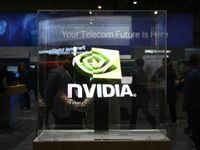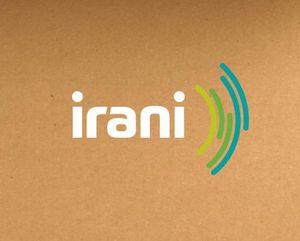Nvidia Corp. is facing a significant challenge as the U.S. government has mandated that the company must now obtain a license to export its H20 chips to China, a move that could have substantial implications for its business. In a regulatory filing on April 14, 2025, Nvidia disclosed that the government informed them that the license requirement would be in effect "for the indefinite future." This decision is rooted in concerns that the H20 chips might be utilized in supercomputers within China, which raises national security issues.
The announcement has sent shockwaves through the market, with Nvidia warning that it will incur approximately $5.5 billion in charges for the fiscal first quarter due to inventory adjustments and related reserves tied to the H20 line. Following the news, Nvidia's shares plummeted by about 6% in extended trading, reflecting investor anxiety over the potential impact of these restrictions on the company's growth trajectory.
The H20 chip, which is designed to comply with existing U.S. export regulations, was expected to generate between $12 billion and $15 billion in revenue in 2024. However, the recent developments indicate that Nvidia's historic growth may be significantly hampered by these increased export restrictions. The company has previously stated that further tightening of these rules could inadvertently bolster China's efforts to cultivate its own technology independence, potentially undermining U.S. companies in the long run.
Nvidia CEO Jensen Huang has expressed concerns regarding the competitive landscape in China, noting that revenue from the region has dwindled to half of its pre-export control levels. In February, Huang highlighted that competition is intensifying, with Chinese tech giant Huawei now listed as a competitor for the second consecutive year in Nvidia's annual filings. This shift indicates a growing challenge for Nvidia as it navigates an increasingly complex geopolitical environment.
In addition to the immediate impacts of the export license requirement, Nvidia is also contending with new restrictions that will come into effect next month under the Biden administration's proposed "AI diffusion rules." These measures aim to further regulate the export of advanced AI technologies, which could further complicate Nvidia's operations and market strategy.
The H20 chip is part of Nvidia's previous generation of AI architecture known as Hopper, introduced in 2022. It is designed with slower interconnection speeds and bandwidth compared to Nvidia's more advanced offerings, such as the H100 and H200 chips. Despite these limitations, the H20 has been pivotal in Nvidia's strategy, particularly in China, where it has been utilized by companies like DeepSeek, which recently unveiled its competitive AI model, R1.
As Nvidia prepares to report its fiscal first-quarter results on May 28, 2025, the company faces a critical juncture. The anticipated charges related to the H20 line could reflect broader trends affecting the semiconductor industry, particularly as the U.S. grapples with its trade relationships and technology export policies. The situation has also sparked concern among other semiconductor firms, with shares of competitors like Advanced Micro Devices and Broadcom experiencing declines following Nvidia's disclosure.
Market analysts are closely monitoring the unfolding situation, as Nvidia's H20 chips have become a focal point in the ongoing dialogue about technology, trade, and national security. The company's ability to adapt to these new regulations will be crucial in determining its future market position and overall financial health.
In the wake of these developments, Nvidia continues to advocate for a balanced approach to technology regulation, arguing that excessive controls may stifle innovation and undermine U.S. competitiveness in the global technology landscape. The company has previously shifted some of its operations, including testing and distribution, out of China in response to earlier export controls.
As the tech world watches Nvidia's next moves, the implications of the U.S. government's export licensing requirement extend beyond just one company. They signal a broader trend of tightening regulations on technology exports that could reshape the competitive dynamics in the global semiconductor market. For now, Nvidia's response to these challenges will be pivotal in shaping its trajectory amid a rapidly evolving landscape.




